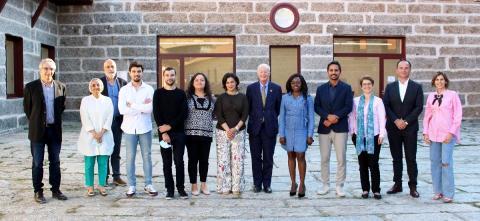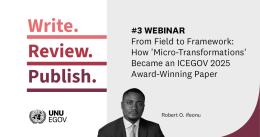The first two days of Dr Malone's visit were centred in Lisbon for high-level meetings with several ministers of the current Portuguese government, with whom the Operating Unit has recently signed a supplemental agreement valid until 2023. The meetings strengthened the relationship between the United Nations University and Portugal while also serving as a time for updates from both sides on the future development of the University's presence in the country.
Accompanied by the President of the North Portugal Regional Coordination and Development Commission (CCDR-N), and both the Head and Deputy-Head of UNU-EGOV, Dr Malone held meetings with the following ministries:
- Ministry of Foreign Affairs
- Ministry of Science, Technology and Higher Education
- Ministry of Territorial Cohesion
- Ministry of Modernization of the State and Public Administration
On Wednesday, 13 October, the UNU Rector travelled north to the city of Guimarães, the home of UNU-EGOV, for two separate meetings. The first one encompassed the Municipality of Guimarães via its Mayor and the University of Minho through its Rector. The second and final meeting was with the team at the Operating Unit, who had the opportunity to sit down with Dr Malone to showcase the current research programme (running until 2024), specific projects and research lines, and the newly-inaugurated UNU-EGOV building.




